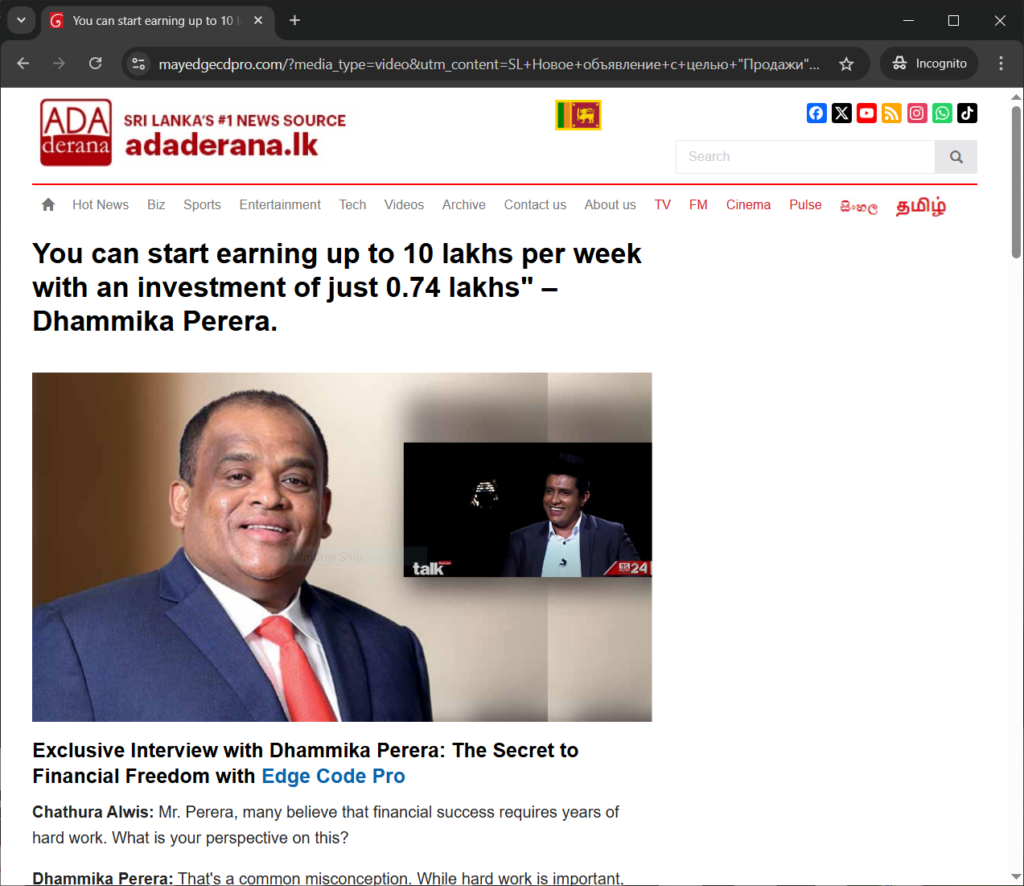Beware of Social Media Investment Scams Targeting Sri Lankans
Lately, I’ve noticed a troubling rise in social media investment scams specifically targeting Sri Lankans. These scams often appear as sponsored ads on social media platforms like Facebook, randomly popping up in your feed and featuring well-known Sri Lankan celebrities.
Take the example below, which showed up as a sponsored video post on Facebook. It features famous business entrepreneur Dhammika Perera seemingly promoting an investment opportunity.

At first glance, it may look legitimate, but if you take a closer look, you’ll realise it’s a deepfake video – created using AI to mimic both his appearance and voice. Some of these ads even use clickbait or controversial headlines to grab your attention.
When you click on these ads, you’re redirected to a fake news website- in this case, a fake version of Adaderana.lk.

While the site might look convincing at first, the domain name is different, and most of the links on the page don’t even work. These fake pages often include a registration form, asking for your personal information like email addresses and phone numbers. Sometimes, they redirect you to yet another fake investment platform that also requires registration.
I didn’t go as far as submitting some fake details, but it’s not hard to guess what happens next: the scammers will likely contact you via WhatsApp, SMS, or email, trying to convince you to invest money. One such site even mentioned a $250 deposit as a starting point for investment.
Here’s another example of a scam ad, this time featuring the popular Sri Lankan singer Yohani:

As you can see, thanks to advancements in AI, scammers can now create sophisticated scams using deepfake videos and legitimate-looking websites. It is becoming increasingly difficult for most people to distinguish between fake and real content.
Stay Safe Online
Even the most tech-savvy among us can fall for scams like these if we’re not paying close attention. Here are a few tips to protect yourself:
- Never trust investment advice from random sponsored posts, even if they feature a familiar face.
- Always verify the source. Check domain names and make sure you’re dealing with official, trusted websites.
- Be cautious with your personal information. If a site feels off or pushes you to register quickly, it’s likely a scam.
Scammers are getting more sophisticated, but a bit of skepticism and awareness can go a long way in keeping you and your money safe.